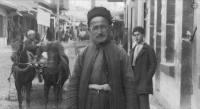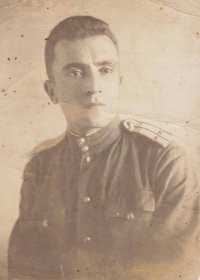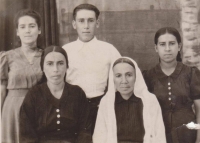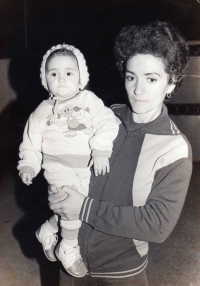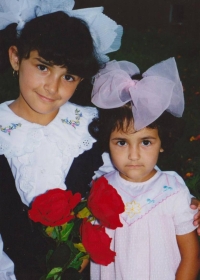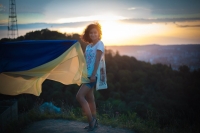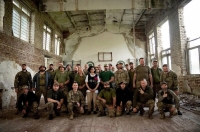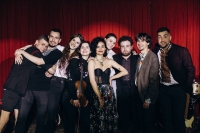"As time went by, I began to pay more attention to our Crimean Tatar music and songs. When I found myself (after the start of the full-scale war) in the company of people who cared a lot about traditional Ukrainian singing, I was asked, ‘Oh, so you are from Crimea, are you? Sing something in Crimean Tatar.’ And it was so cool. I began to try. It is a big responsibility for me and sometimes it is hard because I try to show the best we have so that people are interested in it. In 2022, my music friend and I recorded a song that is now on Spotify and all the sites. It is a song my grandmother used to sing to me, it is called ‘Göğercin’ (‘A Dove’). We first recorded it as an acoustic version, with just the sound of the sea waves in the background. And later we recorded... A friend of ours... It was a music band, we got together as VIA Kvartyrnyk [Home Concert vocal-instrumental ensemble], and we had musicians, a couple of female vocalists and a male vocalist, who had actually got us all together. In 2022, we'd been travelling around for a few months, performing at various benefit concerts, organising these concerts ourselves, collecting money for the AFU [Armed Forces of Ukraine], i.e. all the income we received (apart from cases when we had to travel to another city, then we used part of the income to pay for fuel)... But mostly, when we played in Lviv, we donated 100% of the income to the AFU. There we sang Ukrainian folk songs. They were Ivasiuk's songs. My song was ‘Try trembity’ (‘Three Trembitas’), I really liked the arrangement we did, with the violin, it was all so beautiful. You can find it on YouTube, I think, you can listen to the song there. And some of her other songs. Or even very old unknown ones, written by Ivasiuk as well. It was a cool project. At the same time, I started to delve deeper into our Crimean Tatar music. I am now planning to work with a nice local band from Lviv and record a Crimean Tatar song ‘Sari tülpan’ (‘A Yellow Tulip’) by Noman Çelebicihan, because the band sings songs that are based on the lyrics of the Executed Renaissance, and Noman Çelebicihan was in fact a Crimean Executed Renaissance, he was also executed by the NKVD. He was only 33 years old. I mean, his songs are somewhere close. Nowadays you can just come to ‘Facet’ in Virmenska Street and sing or even teach there. Some of them already know some Crimean Tatar songs that I taught them, and we can sing them in a multi-part version. And that is really cool, the most valuable thing for me personally is that our Crimean Tatar songs can be heard on the streets of Lviv. It is such a cool cultural exchange: I learn Lemko and Boyko songs, local or old traditional songs, and I can sing them and share my own songs as well. Because everyone says that even if I sing something Ukrainian, it still sounds a bit... I sing Ukrainian songs in a Crimen Tatar way. I don't know how, but they can hear it. I can't. I think I sing in Ukrainian, but they go like, ‘No, no, you add some trills, some twists to this melody and you can feel it.’ That's why music is always close to me, I can't exist without it. I always have something in the background or I sing myself, and it always accompanies me.”
